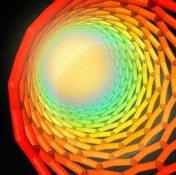 | « Back to article | Print this article |
 Thermopower waves may be the ideal power source for tiny electronic devices and micro-systems, says a team led by an Indian-origin scientist.
Thermopower waves may be the ideal power source for tiny electronic devices and micro-systems, says a team led by an Indian-origin scientist. In their research, Sumeet Walia and colleagues at RMIT University have outlined the creation of new semiconducting structures for the generation of thermopower waves at micro-scale - a new technology that could enable tiny power sources with unprecedented capacity.
According to the scientists, thermopower waves could be used as micro-power sources for a broad range of miniaturized applications.
"Tiny electronic devices powered by thermopower waves could apply large energies to targeted cancer cells inside the human body, enabling an exceptional level of precision in cancer treatment," team member Kourosh Kalantar-zadeh said.
"They could help realise concepts like 'smartdust' -- micro-electromechanical
According to Walia, the size of power sources had not kept pace with the ever-reducing size of electronics.
He wrote in the 'Energy & Environmental Science' journal: "The development of miniaturised energy sources is a key challenge to overcome in order to build the next generation of electronic devices.
"We focus on thermopower waves -- which generate intense waves of electrical current by sweeping electrical carriers from one end of materials to another -- because of their potential for creating smallscale power sources that can release energy at very high rates.
"Our work demonstrates a new class of micro-power sources and shows it is possible to obtain alternating output signals with opposite polarities, which is crucial for developing alternating signal sources."